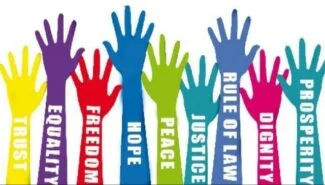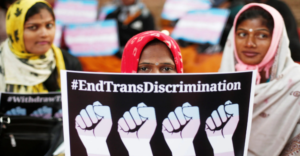~ Mahak Garg
What is PIL ?
Public interest litigation is the power given to the poor men by courts through judicial activism so that they could come forward and talk about the interests of a group. Public Interest Litigation or Social Action Litigation or Class Litigation is a kind of legal action, filed in a court of law, for the protection of public interests. Matters where the public interests are being affected at a larger pace can be filed under PIL. Some of the matters like that comes under PIL are : Environmental Issues, Terrorism, Road Safety, Neglected Children, Bonded Labour Matters, Food Adulteration, Maintenance of Heritage and Culture etc. There are some issues that cannot be filed under PIL like : Landlord – Tenant Matters, Service Matters,Pension related Matters, Admission to Education Institutions, Pending hearing in courts etc. Public Interest Litigation is not defined under any Act in Indian Constitution.
History of PIL
Though the concept of Public Interest Litigation has been originated from United States of America but in India it was brought first time by Justice Krishna Iyer in 1976 in Mumbai, Kamagar Sabha vs. Abdul Thai. The first reported case of the PIL was Hussainara Khatoon vs. State of Bihar (1979) which focused on the inhuman conditions of prisons and under trial prisoners that led to the release of more than 40,000 under trial prisoners. A new era of the PIL movement was headed by Justice P.N. Bhagawati.
Who can file a PIL ?
Any Indian citizen can file a PIL by filing a petition under
- Article 32 of Indian Constitution in Supreme Court.
- Article 226 of Indian Constitution in High Court
- Article 133 of Criminal Procedure Code in the Court of Magistrate.
However, the person who is filing this petition must satisfy the government that the petition is being filed for a public interest and not for one’s private interest. At times, even the Court can keep an eye on a matter if it is one of utmost public importance, and appoint an advocate to handle the case.
How to file PIL ?
Steps to file a PIL :
- Hire a Public Interest Lawyer to file a case.
- Collect necessary documents like Identity Proof, Photographs, Proof Residence etc. that are to be submitted to court.
- List names and addresses of all parties whose rights have been deprived of approaching the court.
- List names of government agencies from which relief is sought.
- List facts giving rise to violations of Fundamental Rights.
- Clearly mention the relief being sought from the court.
- If you are filing PIL in the High Court, then two copies and if in Supreme Court, then five copies of the petition are to be filed before the court.
- The one who has filed the petition must submit a fee of Rs. 50 for each respondent and affix it with the petition.
Significance of PIL
The main objective of the PIL was to give equal access of courts and laws to the poor people to obtain legal redress. But later, it makes all the things possible that weren’t possible to do in the past. It is significant to maintain transparency between law and justice, to give justice to the poor people, to make human rights reach those people who have been denied from these rights and to enhance public participation in judicial matters. Any citizen or organisation who is capable can file petitions on behalf of those who cannot file the PIL or do not have the means to do so. It is an important tool to bring equality in the society and democratises the access of justice to all. It is working for the welfare of almost every section of the society.
Weakness of PIL
After some time, when PILs came into action, many people started filing fake
petitions that were based upon the interest of a particular person rather than the society or for some other reason, due to which it leads to overburdening of PILs on courts. Another problem was that some times there used to be clashes between different sections with different interests due to which many PILs were pending for long years. Also, Since PILs were for the betterment of poor sections of the society, they were give more importance than the other cases in the courts. Sometimes this also creates clashes amongst the courts.
Factors responsible for the growth of PIL in India
- Flexibility of Indian Constitution : India is a democratic country and its constitution gives rights to its countrymen, so that they can come forward and share their problems with the government.
- Liberal interpretation of Locus Standi : A person can file a PIL on the behalf of people who wanted to file a complaint but cannot do so due to being physically or economically disabled.
- Fundamental rights : The six fundamental rights that are provided by Indian Constitution to the public, “Right to Freedom, Right to Equality, Right against Exploitation, Right to Freedom of Religion, Cultural and Educational Rights, Right to Constitutional Remedies” is also one factor responsible for the growth of PILs.
Criticism of PIL
In the year 1996, Public Interest Litigation bill was tabled in Rajya Sabha which stated that PILs are misused on the name of giving justice to poor people. People filed fake petitions that wastes the time of courts and that it has a become a thing of publicity. Also PIL cases are given more importance than the other cases due to which many cases are pending in the courts for a long time. However, the bill was not passed. It was because PIL has made an important role in the development of India, maintaining it as a democratic nation and let every citizen to enjoy their rights.
Conclusion
PIL has played a very important role in the overall development of India and its citizens. It has brought the accountability of government towards Human Rights of the poor or backward people. It has brought equality amongst the people. People can speak about their problems and ask the government for its solutions in a legal manner. Though sometimes some issues occur due to different reasons but still it is a better way to give identity to poor people, who were deprived of their rights and don’t how to use those laws and rules for the betterment of their lives.
Must Read: Important Rights, Acts and Penalties Related to Safety of Citizens





